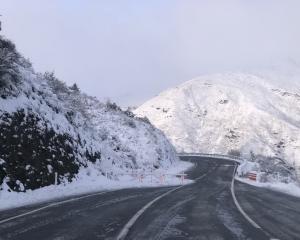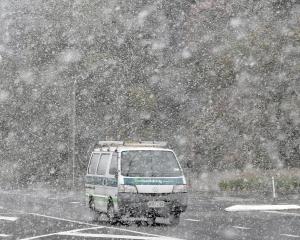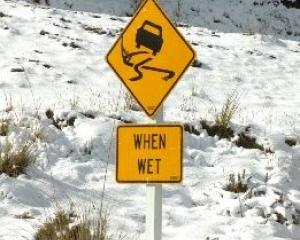Southland and South Otago farmers struggling from a week of snow on lowland farms in the middle of lambing are to be offered taxpayer-funded assistance.
Agriculture Minister David Carter today declared a medium-level adverse event in the area, triggering government relief measures, including funding for Rural Support Trusts to provide help, welfare support, and farm management advice.
"The current situation is grim and will have a major ongoing impact," said Mr Carter, who was today visiting affected farms in Southland.
"This is one of the worst spring storms seen in decades," he said. "As the extreme weather has hit in peak lambing season and at a critical time of year for dairy farmers, the impact is severe."
Farmers have said hundreds of thousands of lambs have been killed by the combination of snow, icy rain, and chilling winds, and some have lost pregnant or lactating ewes to metabolic illnesses as they ran short of feed just as the animals were in most need of good nutrition.
"Losses of this magnitude not only impose a huge economic cost on farmers, but also significant emotional and mental stress," said Mr Carter.
"As a farmer myself, I have real sympathy for the pain that farmers are feeling under these conditions."
There was severe pressure on Southland and South Otago's rural communities, in which farming families were the lifeblood of provincial New Zealand.
Mr Carter went south to visit the small farm run by Federated Farmers' national president, Don Nicolson, and his wife Gail at Waimatua, southeast of Invercargill, and the farms of Matthew and Vanessa Richards and David and Alana Clarke.
The widespread livestock deaths have drawn animal welfare concerns that ewes and their offspring may have died because of a lack of shelter or food, but the federation's adverse events spokesman, Southland sheep and beef farmer David Rose, said many farmers had pushed back lambing from late winter into spring to reduce risk.
"We find this incredibly upsetting and distressing because every stock death like this gets to us," he said.
"The spring storm of 2010 is frankly the worst in a generation," said Mr Rose.
"The last big dump of snow we had was 14 years ago in the winter of 1996, while the last time we had anything this severe was 38 years ago, in 1972".
"Farmers are doing their utmost to keep stock alive but these weather systems have been unrelenting.
"It's a combination of oscillating driving wind, snow and rain that is doing the most damage to stock as well as sapping energy from farmers.
"Economically, we're also seeing a massive loss of our 2010/11 crop and on the worst affected farms, valuable breeding ewes as well," Mr Rose said.
Snow was falling again today but forecasters have predicted temperatures should start to lift over the weekend as winds drop and sunnier weather returns.








